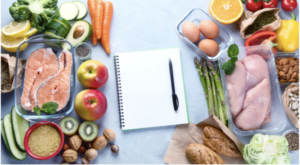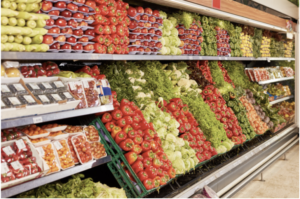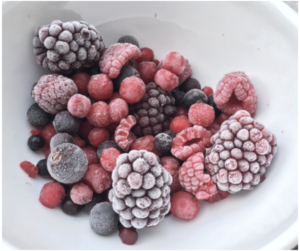Eating well on a budget
Eating well on a budget
Cost is a very big factor to consider when it comes to our food choices. And whilst some feel that eating more healthily can cost more, there are some great ways to help minimise this. We want to give you some ideas on how to reduce spending but also ensure you can eat better.
Here are our top 10 tips to help you be successful with eating well and reducing your food costs!
Cook in bulk and freeze extra portions
When you can double, triple or even quadruple a recipe, this will help save you money in the long run. Especially when you can freeze leftover portions to have for a rainy day, or when you don’t have much time to cook. You will still have a tasty and nutritious meal to enjoy in no time!

Plan meals
Planning in advance is one of the best ways to help reduce costs, making sure you can buy what you need. If planning for a whole week seems like too much right now, start off with two or three days. Buy only what you need and you know you will use, to prevent any food waste.
Create a shopping list
This is important when planning meals – write down a list of everything that you need and stick to only what is on the list! Again, this means you are less likely to buy foods or drinks you won’ use and be more mindful about your spending overall. It can also be helpful to check what you have in your cupboards already, so you don’t stock up without intending to!
Buy supermarket brands
Often premium food brands will make you believe they are superior in taste and quality. However that isn’t always the case! Don’t be afraid to give the supermarket branded products a try, especially when they can be less than half the price of the branded version. In some cases, they are also more nutritious, and can even contain less sugars, salt and saturated fats overall. Try different products each week and find what you like. This will help you save more money off your food shop!
Utilise supermarket offers

Sometimes supermarkets can have some great discounts on products. For example, buy 4 get the cheapest for free, or buy 2 get 1 half price. Though don’t forget to ask yourself, do I need 4 of the product, or will 1 be plenty to last you a long time?
Sometimes the offers actually don’t save you much, particularly on branded products – the supermarket own brands can still be less expensive. Working costs out per 100g of the product can help you compare different brands and sizes of products too, which is important to make sure you are actually getting a good deal!
Reduce waste
One sure way to help with your budget is trying to minimise food waste. If you have leftovers, make sure they are eaten before they go off. And keep an eye out for expiration dates – can the product be frozen if you won’t get a chance to use it before it expires? Keeping a list of expiration dates stuck to the fridge can be very helpful!
Leftovers can often be repurposed into a whole new dish itself. For example, leftover chicken or meat can be used in a pasta bake, or a stir fry. Any leftover vegetables? How about a vegetable omelette?
Eat more beans and pulses
Products such as dried or tinned beans and pulses are often much less expensive than animal products and can be a great way to cut down costs for meals. Tinned products are more convenient as they are already cooked and ready to use, but large bags of dried lentils and beans can last a very long time and are more cost effective, especially as they increase in volume when they cook!
Try swapping some meat or fish in the week out and add in some dishes with beans and pulses. How about a coconut dhal or a chilli? Even swapping out half the meat for a tin or two of beans can be a great way to reduce costs and boost your fibre intake!
Use frozen and tinned fruits and vegetables

Frozen and tinned fruits and vegetables are just as nutritious, if not more so, than the fresh varieties. And often they may be already chopped and are less than half the price! Utilise more of these in your meals, especially if the fresh produce is out of season.
Adding a handful of frozen peas, carrots, peppers, onion or cauliflower to meals is very quick and easy – and this will also help reduce food waste as frozen products have a much longer shelf life than fresh.
Buy cheaper cuts of meat
They may take a little longer to cook, but often they will offer you best value for money and a delicious end result! Buying chicken thighs is often less expensive than breast – you can trim off any excess fat if this is a concern for you. And even buying a whole chicken or joint instead of ready prepared pieces can save you money – you will also get more meat and can use the bones for a stock too.
Even if you are just cooking for 1 or 2, you can freeze any extra to use for future meals, which will help save money down the line.
End of the day discounts
Get to know when the products are discounted in your usual supermarket. They will often slash prices to ensure that the products are sold at the end of the day, which can give you some great bargains! If you get any meat or fish items, they can be frozen on the day and used at a later date, if you are not having the product on that day. This also applies for ready prepared meals, which are often suitable to cook from frozen too.

